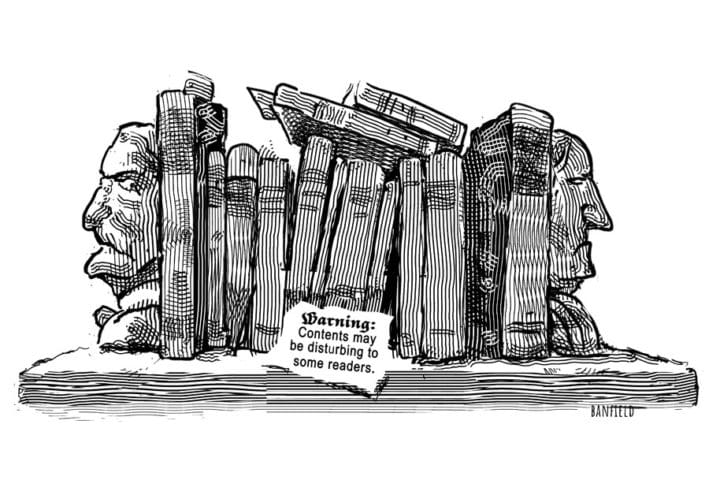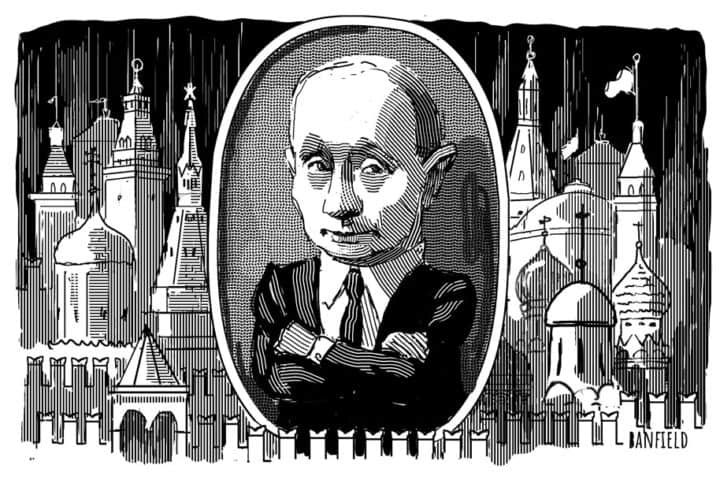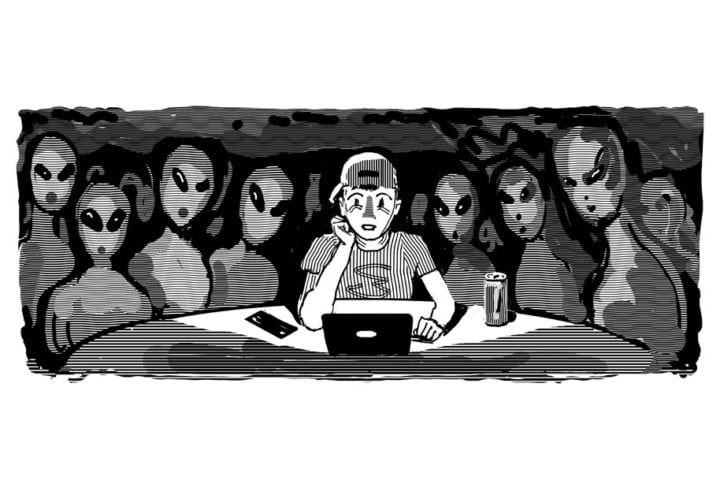Book Reviewed
It’s hard not to like Harry Truman, a man raised in a four-room house next to a small mule-barn. He worked on a farm, as an itinerant railway construction timer, and as a bank clerk, and became a combat artillery captain in World War I, later retiring as a colonel in the Army Reserves. He was co-owner of a haberdashery that failed in the postwar recession, worked for 14 years to retire all his debts, and took night courses in law while serving as a municipal judge (really a county commissioner—he wasn’t a trial judge). He was nominated and elected U.S. senator from Missouri in 1934 by a narrow margin, and in 1940—despite standing resolutely on President Franklin Roosevelt’s coattails as he sought a third term—Truman again was rather narrowly reelected. It was effectively a fluke that he was chosen as vice president by Roosevelt and a small group of party elders in 1944 when it was agreed that the incumbent vice president, Henry Wallace, was too far left and too erratic to be renominated.
There was practically no possibility that Roosevelt would not be reelected, taking Truman into office with him, after the president had led the country through the Great Depression, provided all the assistance necessary to keep Britain and Canada in the Second World War in 1940 and 1941, and led America back to the Philippines and almost to the Rhine less than three years after Pearl Harbor. But Truman and the rest of the Roosevelt entourage knew that the president was unwell and that it was entirely possible that Truman would have to finish his term. Not since former New York Harbor Customs Commissioner Chester A. Arthur succeeded assassinated President James A. Garfield in 1881 had anyone assumed the great office of president with a more slender background of apparent qualifications for it. The contrast between Truman’s flat prairie inflection, slightly over-natty working wardrobe and outlandish Hawaiian shirts when at leisure, everyman vocabulary, and thick spectacles, on the one hand, and Roosevelt’s overpowering self-confidence and mellifluous patrician, monied, and learned Hudson River Valley, Upper East Side, and Ivy League accent, together with his pince-nez and cigarette holder, on the other, could not have been greater. The scion of millionaires, cousin and nephew-in-law of an illustrious president, alumnus of Harvard and Columbia, bright young man of the Woodrow Wilson Administration, two-term governor of the nation’s most populous state (New York), and four-term president was, nonetheless with a suddenness that startled the whole world, replaced by someone who seemed a very average, decent, but unexciting man.
* * *
Jeffrey Frank, a senior editor of the New Yorker, deputy editor of the Washington Post’s Outlook section, and author of Ike and Dick: Portrait of a Strange Political Marriage (2013), presents the trajectory of Truman’s astonishing career in a very orderly sequence in his well-paced and engaging The Trials of Harry S. Truman. Each stage logically gives way to the next and the 33rd president enters at once into the immense tasks that he inherited and for which Roosevelt had done nothing to inform and prepare him. The workmanlike and entirely sensible process by which Truman came to the succession of great decisions that mark him as one of America’s very able presidents emerges clearly and without any histrionics about his sudden leap from profound obscurity to being the most powerful, important person in the world.
Each of these steps is presented convincingly and simply without immediate emphasis or evaluation of their great consequences. Frank maintains that there was never any significant doubt that the atomic bomb would be used in order to expedite the defeat of Japan and save the lives of a great many American servicemen. We could have done with more description of the discussion of alternative targets and of the process, requiring the direct intervention of Emperor Hirohito, by which Japan concluded that it had no alternative but to surrender. More could also have been said about Truman’s decision to designate General Douglas MacArthur to preside over the surrender ceremonies on the battleship Missouri and as military governor of Japan, particularly given the immense controversy that arose between the two men a few years later.
* * *
A bit more elaboration on Truman’s only meeting with the Soviet leader Joseph Stalin, at the Potsdam Conference in 1945, would also have been welcome. There is no reference at all to how the occupation zones in Germany were arrived at in the European Advisory Commission in 1944, or to the violations by Stalin of the Declarations on Poland and on Liberated Europe agreed to at the Yalta Conference with FDR five months before Potsdam. The reader who is unfamiliar with these events would be under-informed by this book on how the Cold War really began. But the escalation of the fundamental disagreement between the Soviet Union and the West is implicit as Truman mobilized congressional and public opinion to provide aid for Greece to prevent Communist subversion of its government, and for Turkey to prevent its intimidation by the USSR. This effort escalated with the Berlin Airlift in 1948-49, though it is so sketchily described that the tension of the time is not as clear as it might be. The origins of the Marshall Plan for assistance to Europe are well described and the credit for that tremendously successful initiative is probably equitably apportioned between General George C. Marshall (for whom it was named), Truman, State Department Russian expert George Kennan, and Deputy Secretary of State Dean Acheson. Again, a few details on the swiftness of the western European economic recovery would have been helpful. (It was interesting to learn that when Marshall revealed the plan in an address at Harvard when he received an honorary degree, his fellow honorees were General Omar Bradley, David E. Lilienthal of the Atomic Energy Commission, and T.S. Eliot.)
* * *
The birth of NATO, which has proved to be the most successful military alliance in history, is presented casually, to a fault. Following World War II a strategic alliance formed among five western European countries (France, the United Kingdom, Belgium, the Netherlands, and Luxembourg). NATO emerged in 1949 when the United States and Canada and a few other states joined. Almost nothing is said about what the terms of the NATO agreement are or about its early force levels. These events and initiatives are, apart from the defense of Korea, the core of Truman’s strong claim to having been an outstanding president, and although it is implied that he has such a claim, at no point does the author, even in his very fair summary at the end of the book, try to place Truman’s relative importance and qualities in any comparative historical context. A reader not particularly well acquainted with American history would assume that he was a rather successful as well as a quite likable president but probably not that he was almost certainly among the seven or eight most successful presidents in the country’s history. (This is despite a relatively uneventful domestic record, as the country recovered quickly from 15 years of Depression and war but Republicans and Southern Democrats blocked enactment of most of Truman’s social agenda.)
Truman’s surprise reelection in 1948 after having been practically written off—another of his greatest accomplishments and at the very core of his legend as slayer of a complacent Republican fat-cat political Goliath, New York Governor Thomas Dewey—is very well described. Less satisfactory is the extensive coverage of the Korean War, though that description is often quite gripping. Due credit is paid to the genius of General MacArthur in conceiving and executing the landing at Inchon, rightly described as “a twentieth century Cannae,” ever to be admired. For the rest of the story of this war, Frank is right to consider MacArthur’s insubordinacy in a number of his public utterances to have been intolerable. But he seriously understates the gravity of the fact that MacArthur was given express approval by the president, the joint chiefs, and the United Nations to proceed over the 38th parallel and toward the Yalu River with the implicit likely objective of reunifying Korea. It is not really acknowledged that MacArthur’s orders were abruptly changed without serious consultation and without the alternatives being soberly considered in Washington. The general was urged forward into North Korea, and then left dangling when the Chinese responded. It is more or less conceded that the famous meeting between Truman and MacArthur at Wake Island midway between the triumph at Inchon and the massive Chinese intervention in November 1950 was a political stunt by Truman to improve his party’s chances in the midterm elections. But there is no attention to the intelligence failures, for which MacArthur was not particularly responsible, that did not detect the extent of Chinese guerrilla forces in Korea. There is an inadequate treatment of the movement of the battle line down and back up the peninsula after the Chinese intervention. At least we are spared the spurious theory of some authors that MacArthur was suggesting the use of nuclear weapons because he was afraid of being driven out of Korea altogether.
* * *
Frank claims that there was a complete miscalculation by Truman in getting into the war and implies that, while it was probably justified by the subsequent success of South Korea as a country, there was much to be said for having simply ignored the North Korean attack and writing off Korea. He completely discounts the MacArthur view that it is strategically impossible to justify sending a conscript army to the ends of the earth to take heavy casualties for any cause short of victory in a demonstrated matter of clear national interest. And he does not consider that MacArthur may have been right that China could have been defeated relatively soon and we would have been spared the appalling subsequent nuisance of the Kim regime in a now nuclear-armed North Korea.
Allowing United Nations war aims to shrivel from the reunification of Korea to peace at almost any price without consulting or, as far as can be judged, even explicitly informing the theater commander of this does not excuse MacArthur’s insubordination, but nor does it obviate the fact that in simple strategic terms MacArthur and those who agreed with him, including subsequent Secretary of State John Foster Dulles and then-Congressman Richard Nixon, may well have been correct. Chinese Premier Zhou Enlai confirmed 20 years later to President Nixon that Stalin wouldn’t have lifted a finger to assist China in Korea. Despite the airing this author gives to the idea that there was any serious chance of Korea blowing up and becoming a nuclear World War III, the idea was never as serious as his book implies, and we now know it to have been nonsense.
The whole MacArthur episode was a dis-aster: there is no excuse for firing him at one o’clock in the morning and in a manner that Frank acknowledges demonstrates the unseemly pleasure Truman sometimes took in brutally dismissing people. If Truman had specifically warned MacArthur that he could forfeit his position if he continued to contradict the commander-in-chief, and if he had made any attempt to reach a consensus in the highest military and civilian ranks in the Defense Department about the best course of action, the appalling blow-up that occurred when MacArthur was sacked—an outrageous fate for so distinguished and victorious a commander—would not have occurred.
* * *
Frank implies that the controversy died down quickly and he accepts overcredulously that Truman had not intended to seek another term as president in 1952. Because of Truman’s handling of the MacArthur dénouement, the careers of both men, as well as of Acheson and a number of others, ended prematurely and unsatisfactorily. At the very least, MacArthur could have been allowed to continue for a time as governor in Japan before a dignified handover to his very capable successor in Korea, General Matthew Ridgway. Frank mentions that Dwight Eisenhower negotiated a cease-fire after only seven months as president, but does not mention that he allegedly did so by letting the Chinese know through Indian diplomats that if there was no progress at the cease-fire talks, the United States would have recourse to atomic weapons—it had been scandalous when MacArthur suggested it, but not when Eisenhower did it. Nor does he make any effort to explain why Truman didn’t resort to the same stratagem instead of accepting more than 20,000 American dead in two years of fruitless, seesaw battle near the 38th parallel. (It’s interesting to consider that if Nixon had not delivered California to support the seating of Eisenhower’s delegates over Robert Taft’s in contested states at the Republican convention in 1952 in exchange for the vice-presidential nomination, Taft would have been nominated with MacArthur as his vice-presidential candidate, and very probably elected. And when Taft died on July 31, 1953, MacArthur would have assumed the presidency in what would have been the most astounding of all American political comebacks.)
The Trials of Harry S. Truman is particularly good in presenting some of the president’s foibles: he had a tendency to make glib historical parallels to events with which he was clearly not overly familiar, referring to battles between Egypt and the Hittites, the Punic Wars, or the travails of the Dutch Republic as if he had extracted snippets of ancient and early modern history from the McGuffey Reader. (Truman did betray his sketchy formal education in a disconcerting frequency of spelling errors.) Frank also punctures a few lesser balloons on his way through; the debunking of Clark Clifford, an elegant and suavely effective Washington fixer and go-between for 40 years who served as White House Counsel for Truman, is very well implied, without being overdone or malicious.
* * *
Frank also presents, without much commenting on it, Truman’s post-presidential wheeze of claiming that there were perhaps “a million men better qualified than I” to be president, but that he did the very best he could. Truman mastered his retirement brilliantly, portraying himself as a sage of great modesty and patience who had been a very successful president, which was not much more than the truth, though not how he was regarded as he left office. The two-volume memoirs he wrote could have been better summarized and reviewed rather than simply mentioned in passing, but Frank is correct to give Truman credit for transforming himself not only into the likable man that he almost certainly was, but into a Horatio Alger incarnation of the righteous, patriotic triumph of the common man.
He was obviously a man of outstanding ability and human qualities who cleverly made a virtue of the necessity of portraying himself as one of nature’s and political life’s heroic underdogs, when he was really the meritorious if improbable heir who continued the mighty political and strategic legacy of Franklin Delano Roosevelt. Perhaps his greatest triumph of all—though this is left to the reader to puzzle out without guidance—was that he was a more successful successor than any other great American president or outstanding leader of any other great modern democratic country enjoyed.
Harry Truman remains one of the most popular presidents among historians and in the recollections of casual readers of American history. Jeffrey Frank’s account of Truman’s time in the White House isn’t extensive enough to be the last word on this very important statesman, but it is a well-researched, gracefully written, and enjoyable read.




